Manufacturers Unite to Protect Intellectual Property
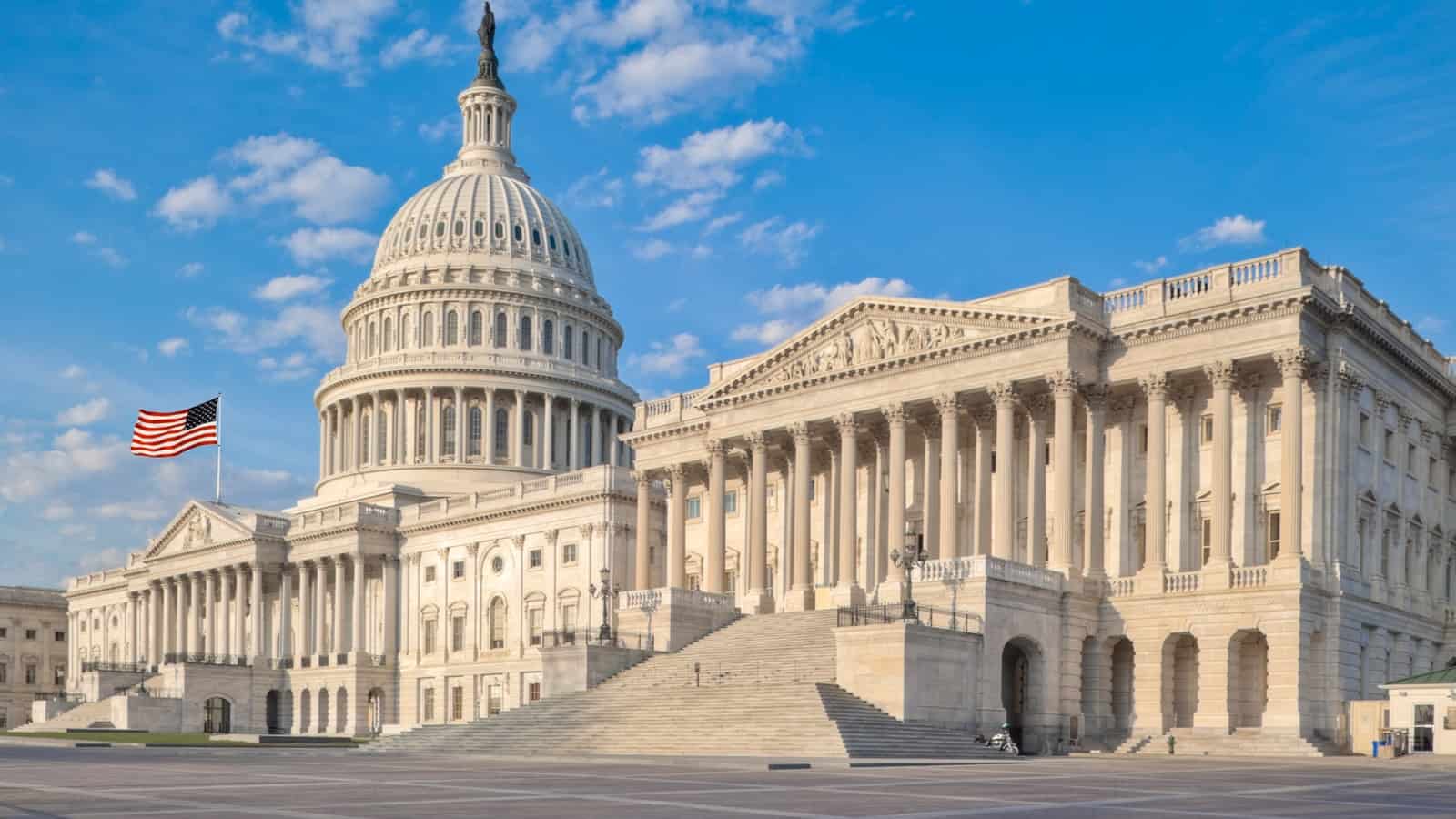
Manufacturing associations across almost 40 states joined with the NAM in calling on the White House to safeguard intellectual property at the World Trade Organization.
What’s happening: The WTO is considering waiving IP rights for COVID-19-related vaccines and treatments—an action that would harm American manufacturers that have led the fight against COVID-19.
What we’re doing: The NAM has previously pushed back aggressively on the proposal, and alongside manufacturers nationwide, we are stepping up our work. In a letter addressed to Secretary of State Antony Blinken, United States Trade Representative Katherine Tai and other senior Biden administration officials, the NAM joined nearly 40 state manufacturing organizations in arguing that waiving these IP rights will negatively affect American manufacturing—as well as the overall fight against COVID-19.
- “This proposal would weaken critical global rules for IP protections that support innovation in a range of manufacturing sectors by including not only broad new categories of COVID-19 products, but also their upstream supply chains. Furthermore, an expanded waiver allows commercial rivals like China to unfairly seize American innovation to benefit their domestic economies.”
The importance of IP: Those manufacturing associations argue that IP gives an incentive for manufacturers to broaden research and development and a reason to invest in expanding industries. American manufacturers are concerned that the IP waivers would expose them to unfair competition from foreign rivals and would take away employment opportunities from Americans.
The last word: “Our organizations strongly urge the Biden administration and Congress to stand with manufacturers and workers to firmly oppose an expanded IP waiver at the WTO. We stand ready to work with you and your agencies in support of real solutions to the pandemic and future health crises—and to advance U.S. leadership in manufacturing and innovation.”
Timmons Talks Immigration in Minnesota
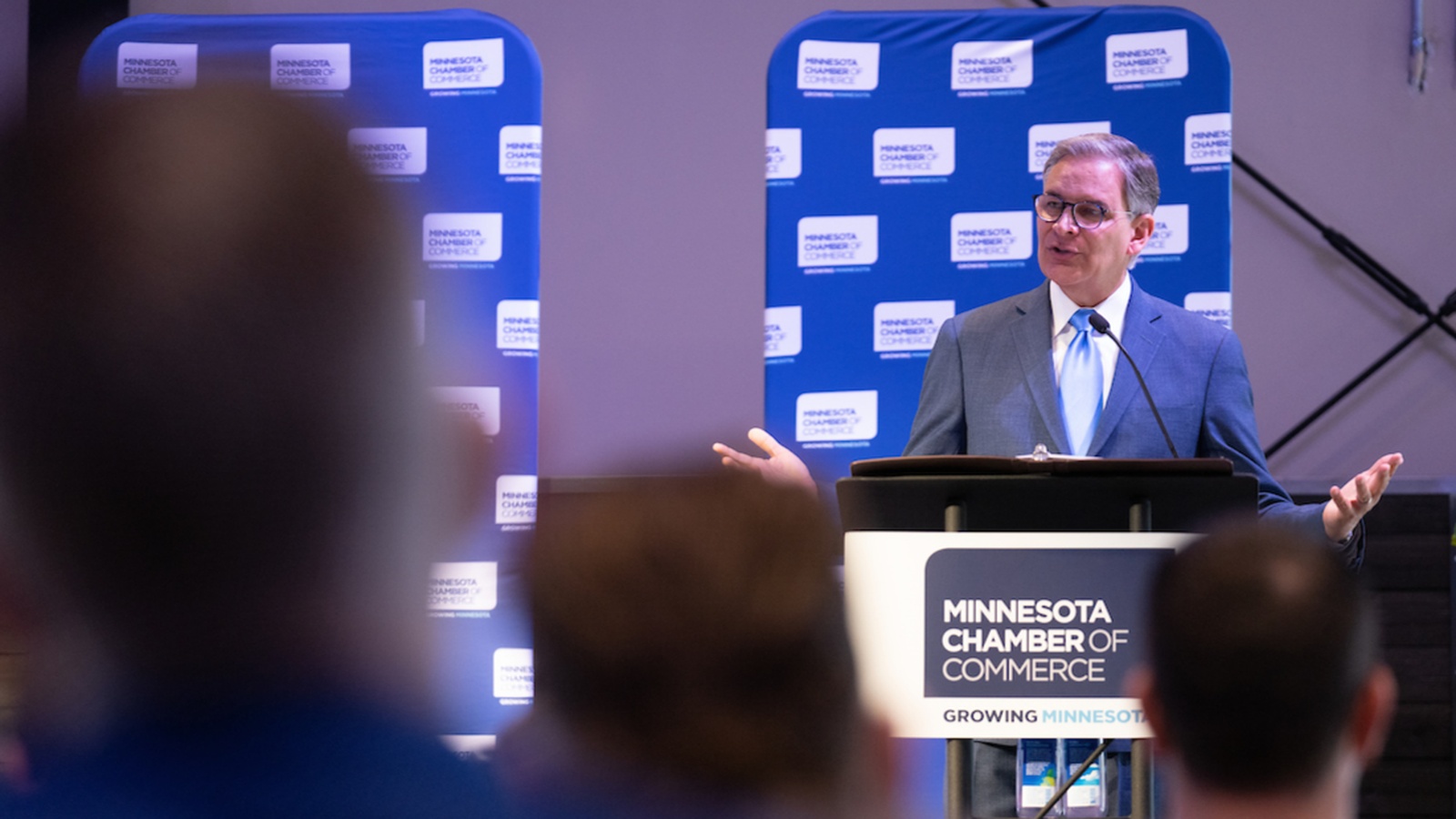
Manufacturing in the U.S. is advancing, but to grow it needs more workers—including via immigration. That’s why immigration reform is one of the NAM’s key policy priorities to boost the industry’s competitiveness, as NAM President and CEO Jay Timmons told the Minnesota Manufacturers’ Summit yesterday in Minneapolis. The event was hosted by the Minnesota Chamber of Commerce.
- This week, the NAM released an updated version of its immigration policy blueprint “A Way Forward,” which Timmons highlighted in his speech.
What our immigration system needs: “Despite all the overheated rhetoric, one thing we can agree on is this: the United States has a broken and unreliable immigration system—and it is harming manufacturers’ competitiveness,” said Timmons.
- He cited the need for more employment-based H-1B visas; more temporary H-2B visas; more programs for foreign-born U.S. students in STEM fields; a new visa category to address temporary economic needs in the U.S.; and protection for Dreamers along with a pathway to legal status for unauthorized U.S. residents.
Other priorities: Timmons also covered other key manufacturing priorities, including energy policy fixes.
- “Congress can deliver sustainable permitting improvements that can fast-track critical infrastructure projects and speed up the construction of new manufacturing facilities,” he said.
- “The situation in Europe and the actions of OPEC show us this isn’t just an issue of economic competitiveness. It’s also an issue of national security.”
Reducing the burden: “Policymakers can also help by streamlining regulatory policy in general,” Timmons added. “The annual regulatory cost burden for an average U.S. firm represents 21% of its payroll.”
- “Manufacturers support smart, sensible regulation to protect our health, our workplaces and the environment. But the more time and resources manufacturers spend on their compliance burden every year, the less we can spend solving our greatest challenges.”
The bottom line: “Whether it’s permitting reform or immigration reform, building on tax reform or advancing workforce solutions, manufacturers are positioned to lead,” said Timmons. “So, our role is to be true to the values that have made America exceptional and kept manufacturing strong: free enterprise, competitiveness, individual liberty and equal opportunity.”
Further reading: Timmons has been hitting the road this week to promote manufacturers’ priorities to leaders across the country. If you missed it, catch up on his earlier speech in Phoenix, Arizona.
Manufacturers Renew Call for Action on Immigration
NAM CEO says broken system is harming manufacturers’ competitiveness
Washington, D.C. – National Association of Manufacturers President and CEO Jay Timmons addressed the Minnesota Chamber of Commerce’s Manufacturers’ Summit today, where he made another call for policymakers to act on immigration, saying it is time to “fix this problem now.” Timmons called on Congress to act in the year-end government funding bill. His remarks come as the NAM rereleased its immigration proposal “A Way Forward.”
Excerpts from Timmons’ speech:
“First and foremost, this is a humanitarian issue. We see it play out in tragic ways—including family separations at the border and confusion as families seek to reunite following a harrowing journey.”
“But as manufacturing and business leaders, we also know there are serious economic consequences. Research and development—the cornerstone of innovation and our industry’s success—depends on access to the best and brightest from across the world.”
“The broken immigration status quo is also preventing us from growing our talent pool, leaving jobs unfilled. There are around six job seekers for every 10 job openings in the U.S., and our population growth is slowing. Last year, the U.S. population grew at its slowest rate ever.”
“Last year’s infrastructure law and this year’s CHIPS and Science Act prove that Congress can still get bipartisan things done—and immigration should be next on the list, whether it’s one bill or multiple bills. We would absolutely support a long-term, comprehensive legislative fix that addresses all of these issues, but we also want to be realists. We have a workforce crisis that needs to be addressed now, so let’s take action where we can. We want to focus on the art of the possible. One approach would be to address some of these issues in the year-end government funding bill.”
First released in 2019 and updated to reflect current challenges, the NAM’s “A Way Forward” proposal identifies seven core areas of action for Congress and the administration to take:
- Strengthen border security through physical infrastructure and best-in-class technology.
- Prioritize America’s workforce needs through reforms to the legal immigration system.
- Reform nonimmigrant visas and temporary worker programs to reflect employer needs, including a fund to support STEM programs so that we can reduce the need for these types of visas in the future.
- Provide a permanent and compassionate solution for populations facing uncertainty, including the Dreamers, who were brought here as children and know no other home.
- Reform asylum and refugee programs for a more orderly and humane system, including asylum standards consistent with our values.
- Fix the problem of the unauthorized population with a firm reset, requiring an orderly process of review, including financial penalties for those who seek to become legal and deportation for those who choose to stay in the shadows.
- Strengthen the rule of law so that it is respected and followed by all, with a focus on gang violence and also on requiring localities to cooperate to advance the enforcement of immigration priorities.
View “A Way Forward” in full here.
-NAM-
The National Association of Manufacturers is the largest manufacturing association in the United States, representing small and large manufacturers in every industrial sector and in all 50 states. Manufacturing employs more than 12.8 million men and women, contributes $2.77 trillion to the U.S. economy annually and accounts for 58% of private-sector research and development. The NAM is the powerful voice of the manufacturing community and the leading advocate for a policy agenda that helps manufacturers compete in the global economy and create jobs across the United States. For more information about the NAM or to follow us on Twitter and Facebook, please visit www.nam.org
NAM VP Monahan Talks International Economics
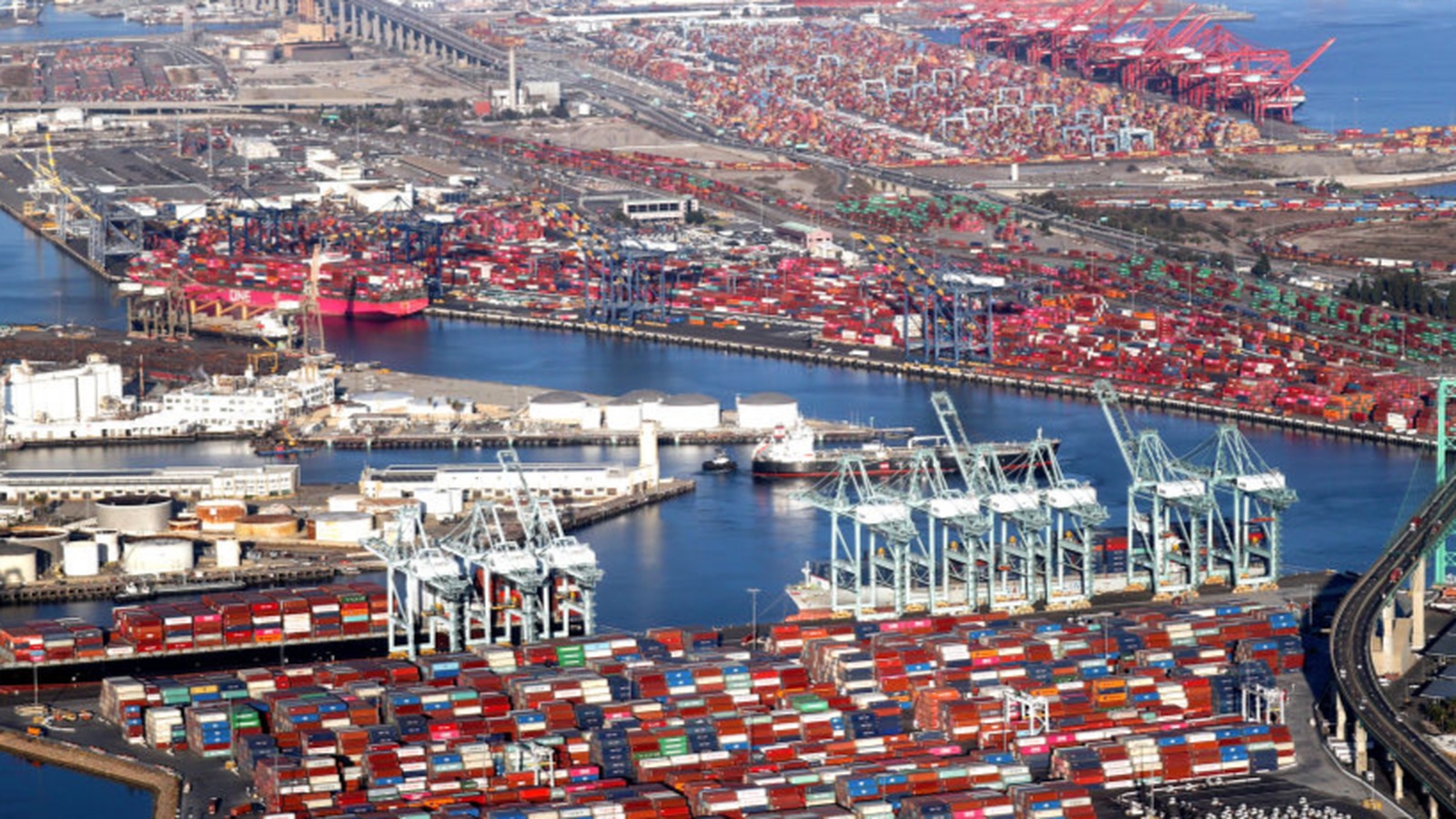
As the manufacturing industry grapples with disruptive forces in the U.S. and around the world, companies are looking for more certainty and opportunity.
NAM Vice President of International Economic Affairs Ken Monahan spoke about these issues with UPS President of International Public Affairs Penelope Naas in a panel discussion during the UPS Supply Chain Solutions virtual conference on Oct. 5.
The big idea: “Manufacturers of all sizes must be able to compete in a global economy by selling not just to consumers in the U.S., but also to billions of consumers globally,” said Monahan.
- “For us, international economic growth is core to our DNA—and it is absolutely critical that we increase opportunities for those 95% of the global population that lives outside of the U.S.”
- The NAM emphasized these broad priorities in its just-released “Competing to Win” policy agenda.
The challenge: “We’ve just seen wave after wave of supply chain disruptions, and the impact that that’s happening on the ability of manufacturers to operate and engage not just in the U.S. but globally,” said Monahan. “In a recent quarterly survey [of NAM members], 78% of our leaders listed supply chain instructions as a primary business challenge.”
- According to Monahan, the global nature of manufacturing underscores “the importance of our industry working to ease the types of global supply chain bottlenecks that are impacting so many businesses around the world … easing uncertainty and … knocking down unfair trade barriers that continue to stymie the growth of economic activity globally.”
Problems and solutions: Monahan named COVID-19, the Russian invasion of Ukraine and disclosure requirements that require more scrutiny of supply chains as key factors impacting manufacturers—and emphasized the need for diverse sources of products to ensure supply chain resiliency in the future.
Building partnerships: Monahan pointed to the importance of robust trade agreements and partnerships with economic allies to secure resilient supply chains and promote fair competition.
- “When it comes to trade, we need to think through ways in which we can deepen our partnerships with our friends and allies,” said Monahan. That means “seeking trade agreements and cutting-edge, best-in-class frameworks with our trading partners to encourage increasing standards to U.S. levels.”
Monahan also noted a series of ongoing U.S. efforts with global trading partners, including in the Indo-Pacific region, Europe, the Americas and Kenya. He made clear that the NAM is working to promote new agreements that open markets, strengthen U.S. innovation and technology standards and increase global standards around trade rules, among other priorities.
- Such U.S. global engagement is “demonstrating to manufacturers that the U.S. is back on the field,” said Monahan. “But at every opportunity, we are pushing the administration to think bigger, be even more ambitious and take this opportunity in front of it.”
Promoting transparency: Monahan spoke about the importance of manufacturers’ insight into their supply chains.
- “Companies need to be knowledgeable about as many tiers of their supply chains as possible and have strong due diligence and compliance programs in place to ensure to the maximum extent possible that goods are not being sourced or sold to entities that use forced labor or are on various export control lists,” he said.
The last word: “We need to be able to really put forward and advance the same principles globally that we do here at home as manufacturers: nondiscrimination, fairness, equal opportunity and competition,” said Monahan. “We are at our best when we are advancing those priorities globally and in the U.S.”
Timmons Lays Out Manufacturing Priorities
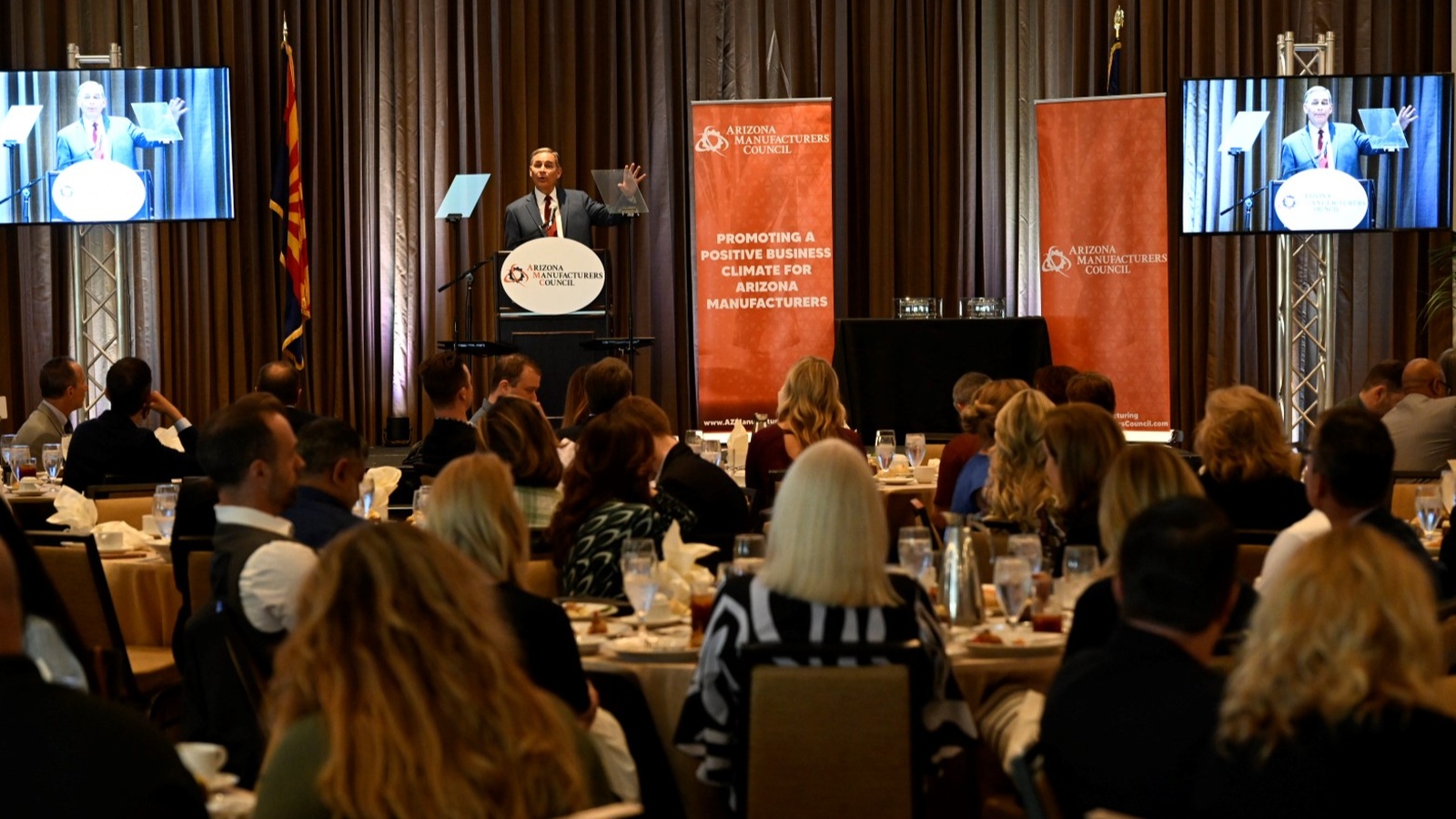
NAM President and CEO Jay Timmons is on a barnstorming tour of the U.S., to raise more support among leaders for addressing supply chain challenges, creating more manufacturing jobs and making the country more resilient. He brought this message to the 2022 Arizona Manufacturing Summit in Phoenix, Arizona, yesterday.
Manufacturing’s strength: “I’m pleased to report that manufacturers are shattering expectations across the United States,” said Timmons. “Here’s one encouraging fact: manufacturers have now recovered all the jobs the industry lost at the start of the pandemic—and then some. There are more than 12.8 million people working in manufacturing… And that’s because we’re doing what we’ve always done. We’re solving problems, we’re innovating and leading into the future.”
Challenges ahead: “Inflation has reached the highest level in decades,” said Timmons. “Supply chains are still strained, making it harder to move resources and products. Global instability—especially Russia’s war on Ukraine—shows us it’s more important than ever that we secure domestic energy supplies.”
- “We’re facing a workforce crisis, with less than six job seekers for every ten jobs in America. And almost 70% of Americans today say the country is on the wrong track. Now, we’ve seen some moments of historic bipartisan action in Washington … But there is so much more to be done.”
Competing to Win: Timmons pointed to the NAM’s policy roadmap, “Competing to Win,” which offers an agenda for manufacturing competitiveness on issues including the following:
- Taxes: “We need U.S. tax policy to keep up and encourage more industrial investment here,” said Timmons. “So, we’re calling for making the 20% deduction for pass-through income permanent—and expanding it. The small and medium-sized businesses here deserve confidence that they won’t lose that all-important tool. And we need to fix provisions of the tax law that are making R&D and capital investment more expensive starting this tax year.”
- Trade: “While we’re working on tax policy here at home, we also need to expand opportunities to sell our products overseas,” said Timmons. “Exports are part of our industry’s lifeblood. That means policymakers should hold countries accountable for practices that harm manufacturers in the U.S. We should continue pursuing cutting-edge trade deals, while ensuring that the agreements already in place are delivering for our industry. And we should reject policies at international bodies like the World Trade Organization that would take away intellectual property rights.”
- Immigration: “We need Congress to fix the broken, unreliable immigration system,” said Timmons. “Clearly, we need border security, and we need more avenues for people to come legally and work. It’s critical to our economic competitiveness—and consistent with our values.”
The way forward: “It can be disheartening to know that so many Americans don’t believe the country is on the right track,” said Timmons. “But a focus on policy—getting things done, rather than blaming each other—can change that. And manufacturers are positioned to lead. The work we do to create jobs and to improve the quality of life is essential, and we can’t let up. We won’t let up.”
Manufacturers Call for Repeal of Anti-Competitive R&D Tax Policy
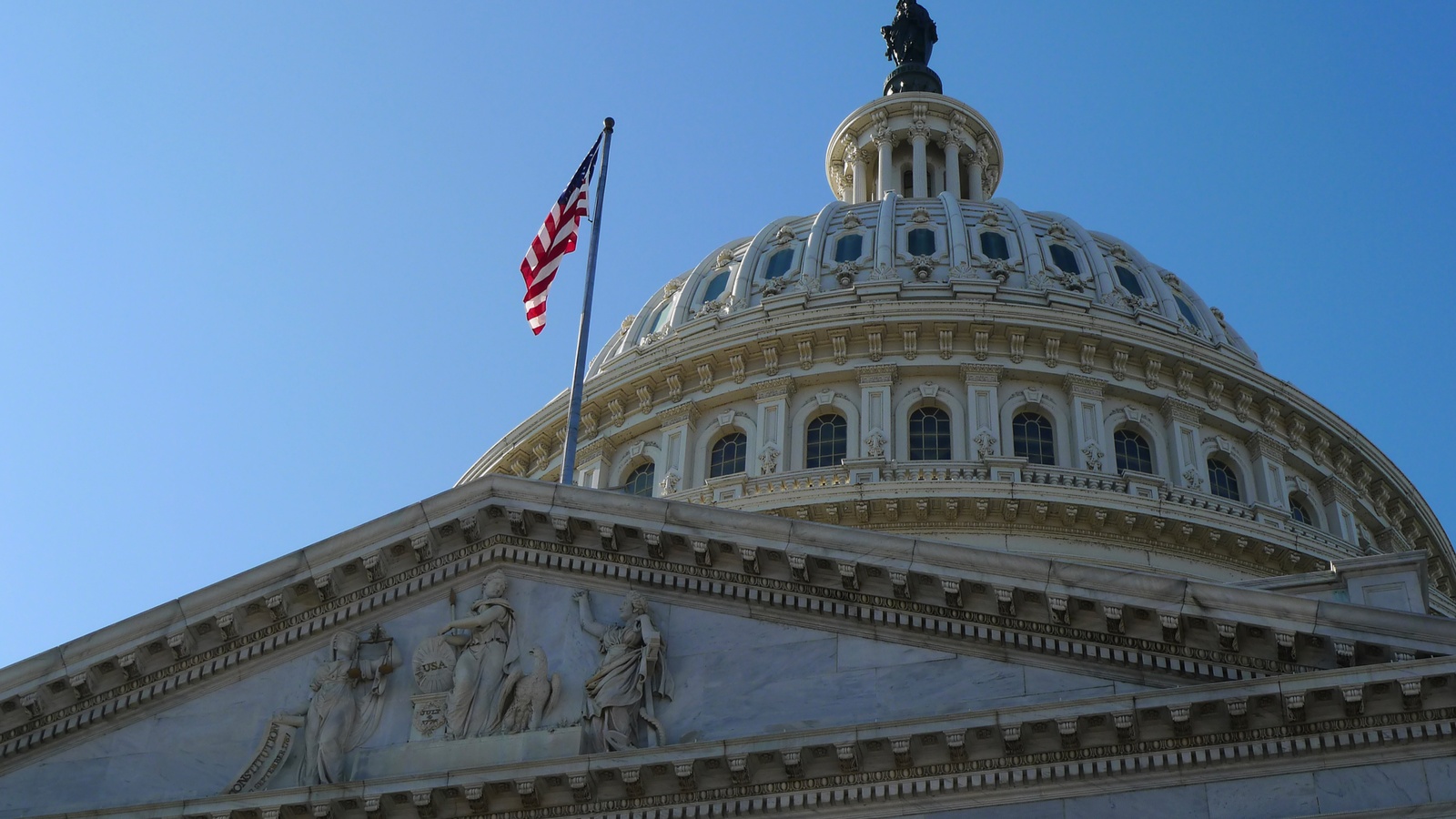
This story can also be found within the NAM’s R&D action center.
In an industry where technology and processes can change quickly, manufacturers in the United States must be able to invest, grow and maintain their edge against foreign competitors. At a time when China is providing extensive support for its manufacturing industry, the NAM is pushing to ensure that the men and women who make things in America have the tools they need to succeed.
The challenge: Right now, China’s tax policies offer significant incentives for research and development. For example, China offers a super deduction for manufacturers performing R&D by allowing them to deduct 200% of their R&D expenses. This policy makes it more attractive for manufacturers in China to invest in innovation—and to out-compete manufacturers in the United States.
The comparison: Meanwhile, U.S. manufacturers, who drive more innovation than any other sector, face a harmful tax change that if not reversed will hurt jobs, innovation and competitiveness.
- Up until January 2022, a business in the United States could deduct 100% of their R&D expenses in the year during which those expenses occurred.
- But a change in the tax code that took effect this year now requires businesses to spread those deductions over a period of years—the so-called amortization requirement—making investment in innovation more expensive to conduct.
Recent action: This week, the NAM rallied the business community to urge Congress to repeal the recent tax change, so that businesses can continue to innovate, bolster the economy and create well-paying jobs.
- “Failing to reverse this change will cost well-paying jobs and reduce future innovation-directed R&D,” according to the NAM’s letter, which was signed by more than 400 companies and business organizations.
- “Requiring the amortization of research expenses will reduce R&D spending and lead to a loss of more than 20,000 R&D jobs in the first five years with the number of lost jobs rising to nearly 60,000 over the following five years. Moreover, when accounting for the spillover effect from R&D spending, nearly three times as many jobs will be affected.”
- “At a time of increasingly fierce global competition for research dollars, this change will make it harder for the next R&D dollar to be spent in the U.S. which will ultimately hurt future U.S. competitiveness.”
What we’re saying: “Research and development is the lifeblood of manufacturing,” said NAM Senior Director of Tax Policy David Eiselsberg. “It is what drives innovation, competitiveness, economic growth and the creation of high-paying jobs. But that is all at risk unless Congress quickly acts to repeal the harmful change in the tax treatment of R&D expenses.”
Finer point: “If Congress and the administration do nothing, small manufacturers will face a huge tax increase at the end of the year,” NAM Executive Vice President Erin Streeter warned. “This will have a crippling effect—and we’re mobilizing support at the NAM across the industry to get another hard-fought priority done.”
How Policymakers Can Support the Manufacturing Workforce
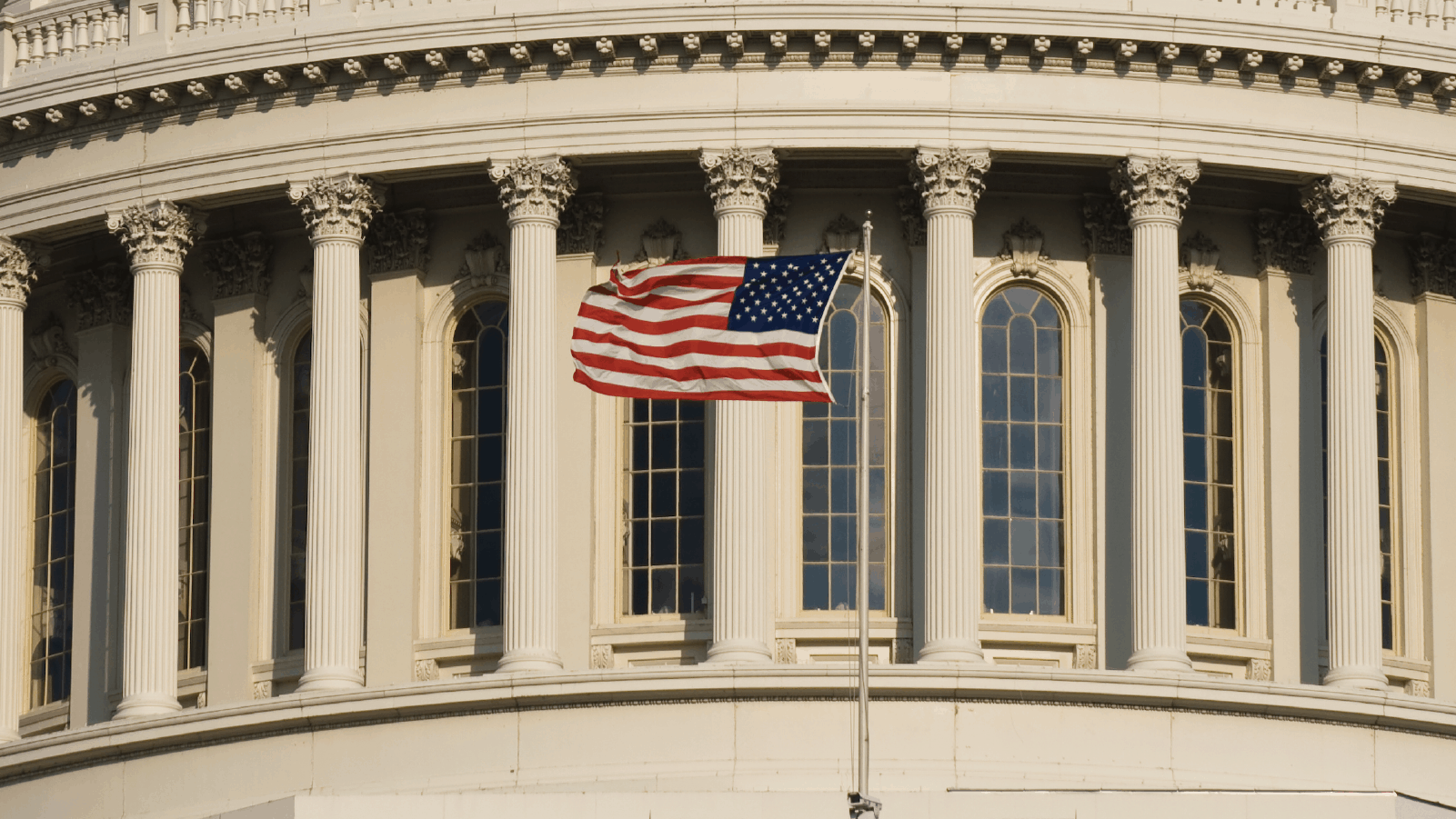
Manufacturers across the country need a strong workforce to enhance the industry’s competitiveness and lead it into a bright future. The NAM is working with policymakers and manufacturers alike to help make that future possible.
The challenge: The need for qualified candidates in manufacturing roles is growing fast. Since the beginning of the COVID-19 pandemic, the number of available manufacturing jobs has nearly doubled.
- According to a recent study by The Manufacturing Institute—the workforce development and education partner of the NAM—and Deloitte, retirements and a persistent skills gap could cause more than 2.1 million U.S. manufacturing jobs to go unfilled by 2030.
Our priorities: The NAM is advocating policies that will help people of all backgrounds find incredible jobs in modern manufacturing.
- That means ensuring every student graduates from high school with the preparation they need to take the next step; reducing barriers to postsecondary education and skills development; creating pathways to good jobs and lifelong learning; creating partnerships between post-secondary institutions and employers; and supporting a range of high-quality education and training models.
Our solutions: To achieve these objectives, the NAM has offered a series of commonsense solutions, including the following:
- Expanding the Pell Grant program to include short-term education models and skills training
- Investing in apprenticeship and earn-and-learn programs
- Promoting attainment of industry-based credentials as a way to complete community and technical colleges
- Increasing the amount of tax-exempt educational assistance employers can provide
- Prioritizing employer leadership in federal discretionary grant competitions
- Reforming federal work study programs to highlight career-focused skills
What we’re saying: “Manufacturers are training and educating new generations of talented, ambitious young people,” said NAM Executive Vice President Erin Streeter in her keynote address at the 2022 Manufacturers’ Awards Banquet for the Southwest Virginia Alliance for Manufacturing. “All of this is ultimately about imparting learners with the skills and values needed to succeed in modern manufacturing.”
Our programs: The MI is focused on a range of initiatives to help build the manufacturing workforce. People interested in a manufacturing career should consider the FAME program, originally founded by Toyota, which offers participants training and certification. The MI also offers programs focused specifically on students, veterans and women.
Learn more: Find out more about the NAM’s policy recommendations for building a strong and effective workforce in “Competing to Win”—a blueprint for policies that support manufacturing in America.
Manufacturers Notch a Critical Victory in Washington Alliance of Technology Workers v. DHS
Following Intervention by the NAM and Other Business Groups, D.C. Circuit Upholds STEM OPT Program
Washington, D.C. – Following a 2–1 decision by the D.C. Circuit affirming the validity of a program that provides hundreds of thousands of skilled workers for manufacturers and other American businesses, National Association of Manufacturers Chief Legal Officer Linda Kelly released the following statement:
“The NAM Legal Center is incredibly proud of today’s victory, which helps ensure the continued availability of hundreds of thousands of highly skilled workers for manufacturing roles. As manufacturers continue to experience significant labor shortages, the STEM OPT program remains a critical talent pipeline, providing opportunities for high-skilled graduates to enhance their education through hands-on work. Today’s win builds on the NAM’s impressive track record of defeating unlawful restrictions and meritless attacks on critical visa programs.”
Background:
Without the STEM OPT program, manufacturers would be unable to fill critical positions requiring specialized training in science, technology, engineering and math. So, in 2018, after an anti-immigration activist group brought a lawsuit against the Department of Homeland Security seeking to invalidate the entire STEM OPT program, the NAM and two other business groups moved to intervene as defendants in the case. That motion was granted, and in December 2020, the District Court for the District of Columbia granted the NAM and its co-intervenor defendants’ motion for summary judgment, ruling that DHS acted within its statutory authority and in accordance with the Administrative Procedure Act by continuing the STEM OPT program. The plaintiff activist group appealed to the D.C. Circuit, and today, the court issued its decision—rejecting the plaintiff’s bases for invalidating the STEM OPT rule and affirming the lower court’s judgment.
-NAM-
The National Association of Manufacturers is the largest manufacturing association in the United States, representing small and large manufacturers in every industrial sector and in all 50 states. Manufacturing employs more than 12.8 million men and women, contributes $2.77 trillion to the U.S. economy annually and accounts for 58% of private-sector research and development. The NAM is the powerful voice of the manufacturing community and the leading advocate for a policy agenda that helps manufacturers compete in the global economy and create jobs across the United States. For more information about the NAM or to follow us on Twitter and Facebook, please visit www.nam.org.
NAM Achieves Victory in Proxy Suit

The NAM notched a significant legal victory yesterday when a federal judge vacated the Securities and Exchange Commission’s suspension of a 2020 rule regulating “proxy advisory firms.”
The background: Proxy firms advise institutional investors on how to vote their shares in publicly traded companies, but those firms have long been unregulated and unaccountable.
- In 2020, in large part through the advocacy of the NAM, the SEC finalized a rule increasing oversight of these firms—but in 2021, the SEC’s new leadership announced that the agency would not enforce the rule.
- Suspending the rule without public notice and comment was a violation of administrative law—and the NAM stepped up to challenge this circumvention of the Administrative Procedure Act in court.
The win: Yesterday, the NAM won its case against the SEC in the U.S. District Court for the Western District of Texas. The decision makes clear that the SEC acted unlawfully by suspending the compliance date for the proxy firm rule without following the notice-and-comment procedures required under the APA.
- As the court said in its opinion, “[agencies] do not have the inherent power to stay or delay a final rule absent notice-and-comment rulemaking.”
What’s next: The NAM has also filed suit against the SEC’s 2022 rescission of critical components of the 2020 rule. That case is still ongoing, with oral arguments scheduled for December—but this week’s decision ensures that the SEC will not be able to re-suspend the 2020 rule if the NAM is successful in its challenge to the rescission.
Our take: “Today’s decision is a victory for the rule of law, and the NAM Legal Center was proud to lead this effort for the industry,” said NAM Chief Legal Officer Linda Kelly. “Federal agencies are bound by the Administrative Procedure Act—standards the SEC failed to meet by indefinitely delaying the compliance date for the 2020 proxy firm rule without notice-and-comment rulemaking. Manufacturers depend on regulators to promulgate and enforce reliable rules of the road, and the NAM looks forward to similarly holding the SEC to account in our ongoing case against the agency’s unlawful rescission of the 2020 rule.”
Manufacturers Celebrate Victory in NAM v. SEC
Judge Overturns SEC’s Suspension of 2020 Proxy Firm Rule
Washington, D.C. – Following a decision granting the National Association of Manufacturers’ motion for summary judgment in NAM v. SEC and vacating the Securities and Exchange Commission’s unlawful suspension of its duly promulgated proxy advisory firm rule, NAM Chief Legal Officer Linda Kelly released the following statement:
“Today’s decision is a victory for the rule of law, and the NAM Legal Center was proud to lead this effort for the industry. Federal agencies are bound by the Administrative Procedure Act—standards the SEC failed to meet by indefinitely delaying the compliance date for the 2020 proxy firm rule without notice-and-comment rulemaking. Manufacturers depend on regulators to promulgate and enforce reliable rules of the road, and the NAM looks forward to similarly holding the SEC to account in our ongoing case against the agency’s unlawful rescission of the 2020 rule.”
Background:
The NAM has long called for increased oversight of proxy advisory firms. In July 2020, the SEC issued final regulations to enhance transparency and accountability for proxy firms, a move NAM President and CEO Jay Timmons called a “long-sought, major win for the industry and millions of manufacturing workers.” In October 2020, the NAM filed a motion to intervene in ISS v. SEC (ISS’s attempt to overturn the rule) in support of these reforms.
In June 2021, the SEC announced that it was suspending enforcement of the 2020 rule; the NAM filed suit against the SEC in October 2021 challenging this unlawful suspension. The U.S. District Court for the Western District of Texas today issued an opinion granting the NAM’s motion for summary judgment and vacating the SEC’s suspension of the rule. As the court explained, “[Agencies] do not have the inherent power to stay or delay a final rule absent notice-and-comment rulemaking.”
In July 2022, the SEC rescinded critical portions of the 2020 rule, a move that Timmons said “epitomizes ‘arbitrary and capricious’ rulemaking.” The NAM has filed suit challenging the rescission; a summary judgement hearing in NAM v. SEC is scheduled for December 9, 2022.
-NAM-
The National Association of Manufacturers is the largest manufacturing association in the United States, representing small and large manufacturers in every industrial sector and in all 50 states. Manufacturing employs more than 12.8 million men and women, contributes $2.77 trillion to the U.S. economy annually and accounts for 58% of private-sector research and development. The NAM is the powerful voice of the manufacturing community and the leading advocate for a policy agenda that helps manufacturers compete in the global economy and create jobs across the United States. For more information about the NAM or to follow us on Twitter and Facebook, please visit www.nam.org.
